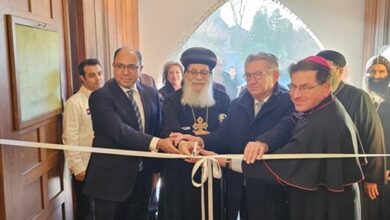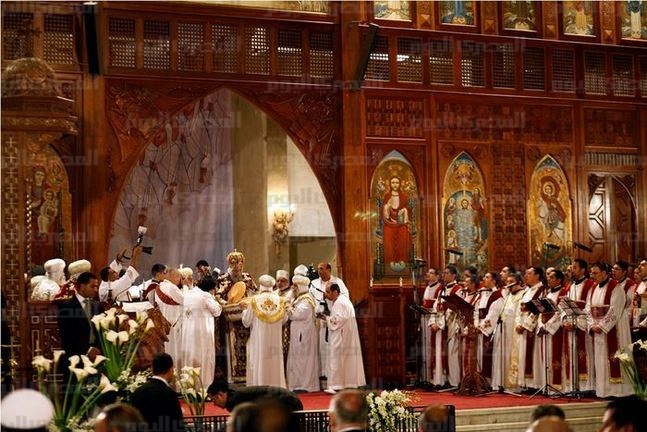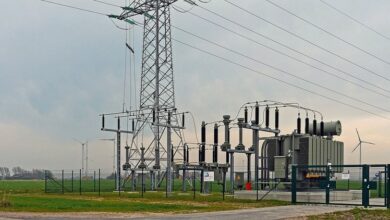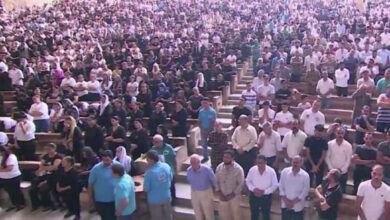Pope Shenouda III, head of the Egyptian Coptic Church, refrained from casting a ballot in Sunday’s parliamentary run-offs in a move that some experts believe signaled his growing disappointment with the regime of President Hosni Mubarak.
On Sunday, the pope inaugurated the Church of Moses in the Sinai Peninsula’s Al-Tor region a day after inaugurating Sharm al-Sheikh’s Celestial Church, leading some observers to say that he was intentionally turning his back on elections.
“That the pope was opening new churches in South Sinai sent a clear message to Coptic voters that they should refrain from casting ballots,” said Ammar Ali Hassan, socio-political analyst at the official Middle East News Agency.
In the first round of elections, Shenouda cast his vote for the liberal opposition Wafd Party–a move that expressed clear frustration with the ruling regime. Previously, Shenouda had always called on Copts to vote for the ruling National Democratic Party (NDP).
A church official told Al-Masry Al-Youm that the pope’s visit to Sinai had been scheduled for last week, but, due to his busy schedule, had been slightly postponed.
“The visit was not necessarily a political statement by the pope, who would be the right person to ask about it,” said papal deputy in Cairo Sargious Sargious.
Last month, Shenouda denounced what he described as excessive use of force against Christian protesters who had clashed with security forces after authorities halted construction of a church in northern Cairo. Two Copts were killed in the melee and 157 others arrested, while church property suffered significant material damage.
Several Islamic groups, meanwhile, have staged demonstrations against the pope in various cities across Egypt, accusing the church of detaining a Christian woman who they allege attempted to convert to Islam. The church denied the allegations, going on to hint that the state had turned a blind eye to the demonstrations.
Egypt’s Coptic Church has long sided with the NDP, which, say some observers, it looks to for protection. Christians are estimated to account for roughly 10 percent of Egypt’s 80-million-strong population.
“Copts have experienced inequality under the current regime,” said Hassan. “The state would be mistaken if from now on it counts the Copts as among its camp.”
Other experts, however, believe Copts will not begin expressing opposition to the regime for fear of Islamic opposition movements, especially the Muslim Brotherhood.
According to observers, Copts were largely divided between boycotting the recent elections and voting for NDP candidates.
“If we look at who Copts voted for this time around, we would conclude that the church still plays a major role in influencing Christian voters,” said Nader Shukry, media officer for the Cairo-based Egyptians against Religious Discrimination (MARED).
MARED provides periodical reports on alleged discrimination against different minority groups in Egypt, including Christians.
“As long as the Muslim Brotherhoods exists, a large segment of the Coptic public will back the NDP,” said Shukry.
In 2005 elections, the brotherhood secured 88 seats–roughly one fifth–of the People’s Assembly. Egypt’s biggest and best organized opposition movement, the group withdrew from this year’s races to protest NDP attempts to marginalize its candidates.
Church lawyer Naguib Gobraiel, for his part, told Al-Masry Al-Youm that the NDP’s reluctance to field a large number of Coptic candidates, along with violent clashes in southern Cairo, represented the main reason behind the popes’ decision not to back the ruling party.
Copts frequently complain that they are denied the right to hold high government positions and build new places of worship. Copts also say that Muslims in Egypt are denied the right to convert to Christianity.




